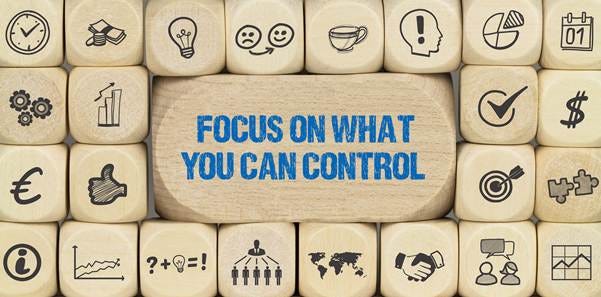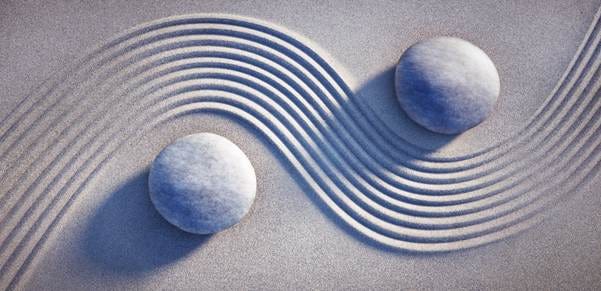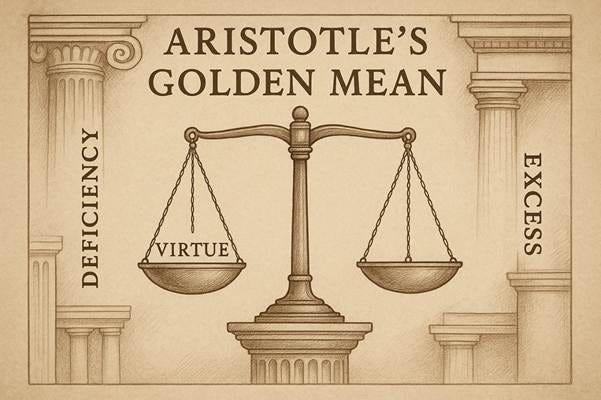
Once a day, I try to go through Instagram and Tik Tok with the intention of coming across something new, whether that be an idea, marketing strategy, AI tool, etc. And at some point, I will inevitably stumble on to a shiny influencer, who smiles at you, and promises "10 affirmations to manifest your dream life," or "hack your mindset in 5 minutes a day."
Typically, we will like, or save the post, while experiencing a brief high. But sooner or later, we will find ourselves back in the rut again the next morning – the anxiety rolls back in, job stress, relationship issues, and the nagging feeling of something missing.
Does this resonate with you? We've all definitely been there. It's safe to say one thing:
Chasing the newest self help perfect potion for inner peace is not key.
Let's open a dusty book from 2000 years ago. No filters, no ads. Just some raw truths about the condition of a human life. It doesn't matter if it's from inside the forums of Athens, or the misty mountains of ancient China, ancient philosophers were not in the business of quick fix. They created systems for living well that were tested by empires and famine before.
In a world filled with productivity apps and vision boards, where does old school wisdom beat the modern self-help approach?
For starters, it is deeper, more accessible and will stand up for you when life gets tough.
Let's dig in, and take a look at these old thinkers from around the globe and how we can use their tools today.
Depth Rather than Superficial Vagueness

Modern self-help often feels like a sugar high: quotes on mugs that inspire you yet last only for this moment. Recently, I observed a nicely wrapped box at a friend's home of quotes, one for each day. I read them all and unsurprisingly, it was a mixed bag of worthwhile quotes, meaningless quotes, and contradictory quotes.
Whoever strictly followed what those quotes suggested, would likely wind up in a psychiatric ward...
The types of quotes skim the surface of reality and invite you to "vibrate higher," without explaining how you got there in the first place.
What about ancient philosophy?
A different beast altogether. It digs to the roots and obliges you to confront reality as it really is.
Take Stoicism, for example. Stoicism started in ancient Greece and was later refined by philosophers during the Roman Empire such as Epictetus, Seneca, and Marcus Aurelius. Epictetus was a slave, Seneca was a courtier and political adviser, and Marcus Aurelius was an emperor and warrior in the midst of wars and plagues. Their message? Focus on what you control, namely only your thoughts and actions, and let the rest go. Epictetus laid it straight:
It's not what happens to you, but how you react to it that matters.

This "dichotomy of control" is a mental firewall. So you lost your job? You can't un-lose it, but you can focus on building resilience rather than dwelling on regrets.
Compare the Stoics to the self-help books of "the law of attraction" of modernity, promising that for a positive vibe nothing else is needed to attract success. Of course optimism helps, but the Stoics lived in a real life where loss was also part of living. The Meditations of Emperor Marcus were written while hearing about deaths in battle, and he reminded himself, "amor fati" or "to love your fate."
A practical way to get this concept into your daily life: The next time you feel yourself boil over with road rage, stop and ask yourself, "Is this in my control?" List three items about your day that you can control. This practice is so simple, and can be done over and over again, and is preferable to scrolling through a gratitude app or list.
Across the world, in the great culture of ancient India, Siddhartha Gautama, the Buddha, offered almost the same excavation. His Four Noble Truths are basically a similar diagnosis.
The first truth is: All life is suffering (dukkha), from a stubbed toe to heartbreak.
The second truth is: The cause of suffering is craving, which is simply holding on to pleasuring or alleviating pain.
Third: Suffering can cease.
Fourth: To achieve these first three truths, follow the Eightfold Path, which includes right view, right intention, right speech, right action, right livelihood, right effort, right mindfulness and right concentration.
Too many ‘rights’ I know; I am going to be labelled a far right extremist …
Little wonder that the mindfulness apps of today owe the Buddha a royal check in marketing... However, for the most part, the mindfulness portion of these apps are mostly online breathing for five minutes, rather than a craving audit of the moment.
To witness for yourself how powerful the forgotten audit is, when in stress mode, ask yourself to trace your it back. What am I craving approval for at work? That's the hook. Release it by noting, "This too passes." It's diagnostic, turn vague anxiety into actionable insight.
Eternal flow vs. trendy culture

Self-help trends flicker like fireflies: keto for the soul this year, biohacking for the next. They age fast because they are tethered to the now's age drama, ie post-pandemic burnout or hustle culture.
In contrast, the ancient ways are evergreen, like the flow of river water that shapes rock over centuries of wearing it down.
Lao Tzu's Tao Te Ching from 6th-century BCE China solves this by way of effortless action (wu wei), or going with the flow.
The Tao (the Way) is the universe's natural order; resist it, and you exhaust yourself.
Lao Tzu teaches, "The soft and supple will prevail over the hard and strong," as does water eventually erode rock. In practice, it means stepping out of the grind. When your calendar is over-burdened, instead of gravitating toward the to-do list, ask yourself, "What's the path of least resistance here?" Delegate the boulder, cultivate the stream.
Modern-day planners instruct us to "crush your goals," however Taoism promotes balance.
When in a heated exchange, wu wei tells us to listen more than lecture, and thus listen instead of conquer.
I have witnessed executives burn out trying to meet KPIs; a one-time-Lao-Zu-pause allows for sustainable rhythm and pacing. And this is smart.
Meanwhile, in the Confucian tradition of ancient China, harmony is the glue. Confucius (Kongzi) emphasized five virtues: ren (benevolence), yi (righteousness), li (propriety), zhi (wisdom), and xin (sincerity). Furthermore, it is founded on filial piety (respect for family), cultivating societal peace. Self-help's "boundaries" books are convincing us that isolation is the answer; Confucius would ask us to build stronger ties instead.
A practical tool: "ren ritual", a 1x/week genuine check-in with someone you love, no agenda. It will build a resiliency network that will be there long after you run a streak of affirmations for yourself.
Balanced Tools for Real-Life Messes
The ancient philosophers went to hack-through experimentation. Philosophies developed in workshops, on the road and not sermons. Aristotle, the ancient Greek polymath, articulated for us the "golden mean", implying virtue as the midpoint between extremes.
Courage? Not recklessness (too much) or cowardice (too little), but steady bravery.
Generosity? Somewhere between stinginess and wastefulness. The point is calibration, not absolutes.
Let's apply it to our current society:
Workaholism (excess) results in exhaustion; laziness (deficiency) meets regret. Find the mean and be focused in your actions, experiencing rest in between. In Aristotelian Nicomachean Ethics, this is related to eudaimonia (flourishing) through habit.
Start small. Track one habit, such as exercise. Too much in the gym? Pull back on duration/days. Getting too lazy? Increase duration/days. This is empirical, if we need to iterate it a little bit like making a recipe sing.
Epicureanism, as with Epicurus in ancient 4th century BCE in Athens, flips pleasure on its head. It's not indulgent pleasure driven towards excess: it's simple pleasures of friendships, modest meals, contemplating nature, while simultaneously preventing the painful experiences of debt or personal drama.
"Do not fear death: when we are here, it is not; when it is here, we are not." The popular "treat yourself" from self-help translates into credit card debt. Epicurus responds with a reminder to enjoy a walk with friends instead.
Tip: At the end of the week, try to find three low-cost pleasures each week. Finding pleasure will calibrate happiness from "more stuff" to, "that is enough, for now."

And what about Buddhism's Eightfold Path? You can view the Eightfold Path as a toolkit for living: Right mindfulness means observing thoughts without judgement, therefore, you wouldn't be reactive.
Suppose you are covering a meeting and things go awkwardly wrong, you take a moment to breathe and label something like "anger forming." Trust me, you will feel better, instead of rambling through your mind or a vent journal.
The Human Operating System Upgrade
Each tradition span continents. Logic from the Greeks, harmony from the Chinese, insight from the Indians, grit as Romans. Yet, they each channel or converge in truth:
You aren't broken. Life is just messy. Modern self-help sells band aids for wounds that go deep. The ancients are selling upgraded operating systems!
Stoics build antifragility. Taoists teach to surrender. Confucians nurture relationships. Aristotle, finetune and find virtues. Epicureans reclaim joy. Buddha maps an exit from mind loops that give you grief. And all that it requires is daily practice.
So now your next scroll session?
Swap the influencer for Epictetus.
Swap the planner of thing-to-dos for Lao Tzu.
Your future self, who's wiser, smarter and more content will thank you! Ancient philosophy is the original hacker for your operating system in life.


